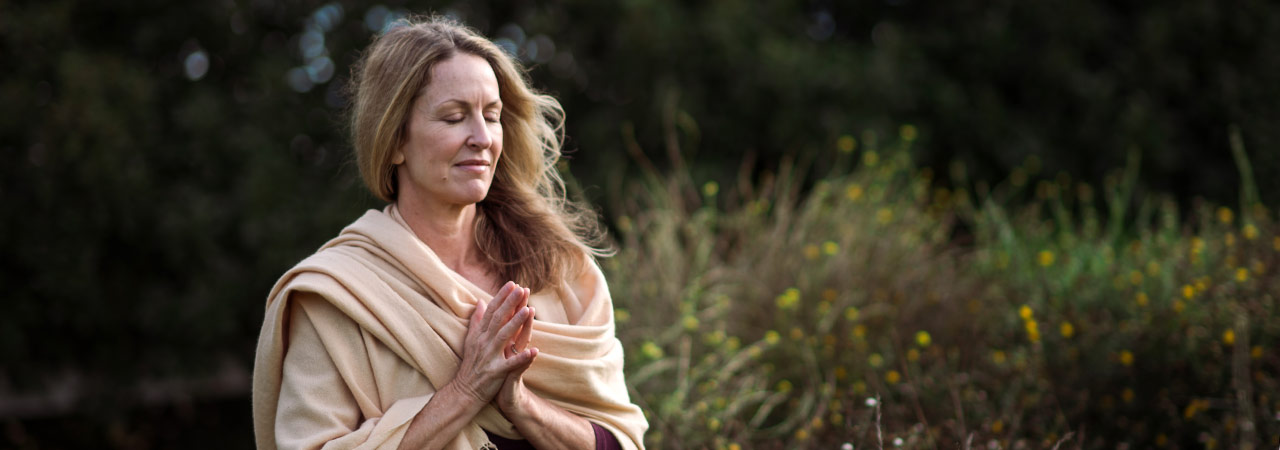
12 Jun Using Dawn to Heal the Past
Years ago a new patient came from out of state for an office visit. Over the course of the consultation, I learned she had several health issues that had been plaguing her since early childhood. She felt they were possibly related to her birth, and childhood, which had both been difficult. As the conversation progressed however, I sensed skepticism and dubiety in her, about Ayurveda, as she hinted that she had only come for the consultation at the urging of a friend. I felt she perhaps had firmly relegated Ayurveda to that section of the brain the “practical” among us reserve for All Things Woo Woo. I considered prescribing certain herbs or regimens that might address her maladies—but I rather thought she may not do anything I suggested. She already thought Ayurveda was weird and, as an extension, so was I. So I decided I had nothing to lose. And got weirder.
My only suggestion was that she wake at dawn, find a way to feel love at that time and, in that loving mood, apply some sweet essential oils to a few marma points (similar to acupuncture points) specific to her conditions, and then sit quietly and focus carefully on Good Things: God, Nature, the Universe—whatever she considered divine. I didn’t give her herbs, dietary suggestions, other lifestyle regimens—all usually essential components of an Ayurvedic prescription.
She looked at me like I had two heads. I thought I would never hear from her again.
About six months later I received a card from that woman, expressing gratitude. Every single one of her symptoms was gone. She was a new woman.
Why did this work?
Who ever really knows? But here’s why I think it might’ve worked then, and why I think it works well in many situations: Because of the Law of Microcosm and Macrocosm, which goes something like this: Everything that exists in the universe, exists in each of us, and vice versa, and each affects the other, like the now famous butterfly metaphor, which suggests that a butterfly flapping its wings somewhere in South America affects weather patterns on far away continents.
If we apply the Law of Microcosm and Macrocosms to temporal cycles, and overlay the 24-hour microcosm over the macrocosm of a lifetime, we can correlate the dawn of a new day with the dawn of a new life—that is, the time in our mother’s womb, our birth, and early childhood.
Both early morning hours and those formative hours, days, and months of our lives are strongly influenced by vata—a force Ayurveda associates with periods of change, transition, the nervous system, formation of neural pathways and all mental and physical movement.
If we experienced trauma during our formative period, vata was likely aggravated, leading to a tendency to anxiety, digestive, nervous system or cognitive disorders. If trauma and vata aggravation were severe, the resulting problems may be lifelong tendencies.
How might we heal this? Because of the relation of early morning with birth, if we pacify vata at that time, it is like we have a window of opportunity to go back in time to change, heal and re-pattern early, stubborn, negative patterns, or to reinforce positive ones that were ingrained during our formative early life.
How may we pacify vata? We can enjoy sweet sounds, fragrances, images, tastes, sweet meditation, and engage in a stable routine.

While ancient Ayurvedic texts suggest ethical guidelines for daily habits and life in general, the great bulk of the specific prescriptions, from waking sometime between 3am and dawn, to meditating, grooming, exercising and bathing, all take place before breakfast. Given the importance of this formative period, it is not surprising that the ancient sages emphasized a morning practice.
The first moments of a day set the tone for the day, as birth and the early days of an infant’s life impacts its lifetime. If we allow the first attention of the day to be peaceful, grateful and infused with a sense of joy, we are delivered into the new day as a healthy individual.
Whenever there is a pattern that dates back as far as we can remember in our lives, we can guess it has its inception in conception, pregnancy, birth or early childhood. For example, one person may feel a vague, free-floating sense of anxiety for her entire life. Another may have always had a weak digestive system. Still another may find herself unable to have healthy intimate relationships. Often there is a sense of hopelessness about changing these tenacious patterns.
Both Ayurveda and Western medicine recognize that what happens to us early in life is crucial in forming lifelong patterns and rhythms, because our organs, tissues, emotional patterns and proclivities are developed during this time. Patterns established during this time are often difficult—if not impossible—to change. Gratefully, the Law of Microcosms and Macrocosms allows a loophole through which to address this. So, to take advantage of this healing potential, if there is a history of trauma or anxiety in childhood, we may be able to help heal this by doing the following:
- Wake before dawn, daily, preferably at the same time each morning.
- Spend some time in loving meditation or contemplation, preferably facing the same direction each morning, no matter where you are, in a room or space that feels safe and undisturbed.
- Apply some 100% natural essential oil of rose or other pleasing, sweet scent to the wrists, neck and to the center of the sternum.
- Sing or listen to a melodious, loving song.
If we can heal our mornings, we may be able to change our lives. If we can change our lives, perhaps our communities can change. Here’s to the butterfly flapping her wings…
You can learn more about a healthy daily routine in this mini eBook, “Dinacharya: Changing Lives Through Daily Living” and explore this concept of healing the past through a present-day morning routine, in our online, self-paced course: Women’s Health & Hormones: Hormonal Balance & Stagnation.


